Religion
/Health
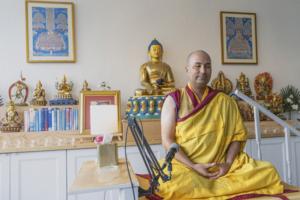
With 'monk on Miracle Mile,' visitors seek peace in this hidden Buddhist center
MIAMI -- Most people who show up to meditation class over what used to be a popular Thai restaurant in Coral Gables are just looking to relieve some stress.
The spiritual part may come later, says Buddhist monk and resident teacher Gen Kelsang Tashi. Or it may not.
Either way, it’s all good here. After all, the mission of the Kadampa ...Read more
Amid ICE raids, bishop tells SoCal worshippers they can stay home on Sundays
A Southern California Roman Catholic bishop told his diocese of roughly one million parishioners this week that they can stay home on Sundays to avoid Mass while concerns about federal immigration sweeps still loom over the region.
Bishop Alberto Rojas of the Diocese of San Bernardino wrote in the decree Tuesday that many church-goers have ...Read more
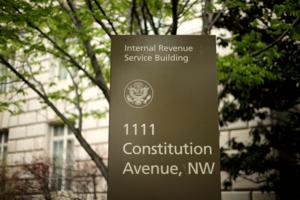
What is the Johnson Amendment? What to know as IRS changes tax exemptions
A longstanding tax exemption preventing nonprofit organizations from engaging in political campaign activity that favors individual candidates has been reinterpreted — signaling that religious organizations may now be excluded from the rule.
The decades-old Johnson Amendment does not apply to speech by houses of worship to its congregation ...Read more
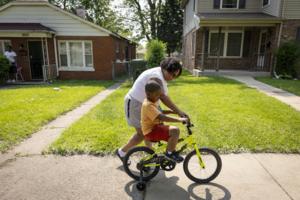
Long after the fuss over Pope Leo XIV, the village of Dolton will still be here
DOLTON, Ill. -- The village of Dolton, which is where you may find yourself if you’re traveling south through Chicago and run out of Chicago to travel through, which we have heard more about in the past 30 days or so than since it was established 130-odd years ago, which is now best known to the world as the hometown of Pope Leo XIV, is like a...Read more
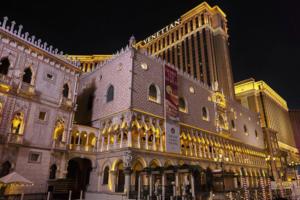
Strip resort will pay six-figure settlement in religious discrimination, retaliation lawsuit
LAS VEGAS — A megaresort on the Strip agreed to pay a six-figure sum to settle a religious discrimination and retaliation lawsuit filed by the U.S. Equal Employment Opportunity Commission.
The Venetian hotel-casino will pay $850,000 and implement “significant policy changes” via a three-year consent decree to settle the suit, the EEOC ...Read more

Illinois town buying Pope Leo XIV's childhood home in village, price uncertain
Officials in Dolton, Illinois, officials are moving ahead with plans to buy Pope Leo XIV’s childhood home in the village, hoping to snap up the modest brick home that has gained international attention ahead of a planned auction.
The Village Board at a special meeting Tuesday voted unanimously to move forward on buying the house at 212 East ...Read more
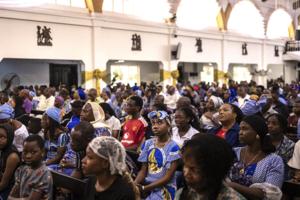
Editorial: A reminder in Africa that the religious freedoms we take for granted are fragile
As Christianity declines in the West, the faith is flourishing in sub-Saharan Africa, which is seeing the fastest growth in Christianity the world over. By 2060, more than 4 in 10 Christians worldwide are expected to live in sub-Saharan Africa, compared with just 1 in 10 in 1970, according to Pew Research.
But this growth is coming at a cost. ...Read more
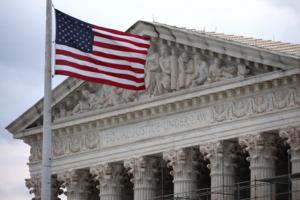
In Maryland case, Supreme Court says parents can opt their kids out of LGBTQ-inclusive curriculum
By a 6-3 ruling Friday, the Supreme Court sided with parents who sued Montgomery County Public Schools in Maryland to opt their children out of mandatory LGBTQ-inclusive curriculum, overturning a 2023 federal court ruling and handing a legal victory to conservatives who opposed the district’s policies on religious grounds.
The case, Mahmoud v...Read more
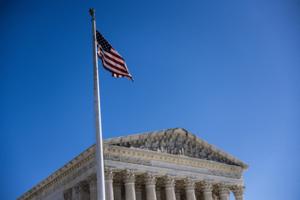
Parents may pull their children from classes that offend their religion, Supreme Court rules
WASHINGTON — The Supreme Court ruled Friday that parents have a right to opt their schoolchildren out of classes and lessons that offend their religious beliefs.
The 6-3 ruling will have an impact nationwide because it empowers parents who object to books or lessons at school.
"A government burdens the religious exercise of parents when it ...Read more

Does religion hold too much or too little sway over US schools? What poll finds
As the decades-long debate over the role of religion in public school education continues to spark legislation and legal challenges in the United States, a new poll reveals the nuanced views held among the general public.
Americans are largely split on what they think about religion’s influence on public school curriculum, with 32% saying ...Read more
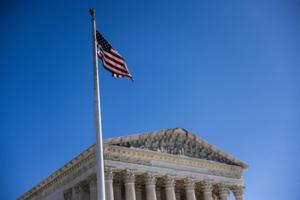
Parents may pull their children from classes that offend their religion, Supreme Court rules
WASHINGTON — The Supreme Court ruled Friday that parents have a right to opt their schoolchildren out of classes and lessons that offend their religious beliefs.
The 6-3 ruling will have an impact nationwide because it empowers parents who object to books or lessons at school.
"A government burdens the religious exercise of parents when it ...Read more
Queens priest defrocked over sexual abuse allegations dating to 1980s
NEW YORK — A Queens priest has been defrocked over sexual abuse allegations dating back more than two decades, according to church officials.
The Rev. Michael McHugh, a parochial vicar at Our Lady of Mount Carmel in Astoria, was removed from the ministry after members of a Catholic review board claimed they substantiated allegations of ...Read more
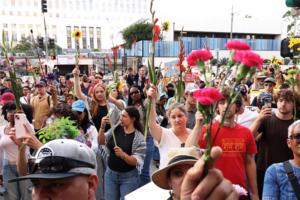
LA faith leaders come together to defend immigrant communities amid federal raids
LOS ANGELES — More than a dozen religious leaders from an array of faiths marched to the steps of the Federal Building in downtown Los Angeles on Wednesday night, flowers in hand, calling for an end to the federal immigration raids they say have torn families apart and resulted in racial profiling.
At the start of the procession in Plaza ...Read more
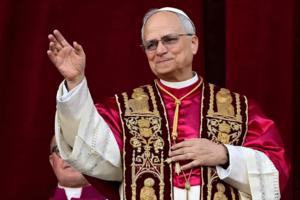
Are Pope Leo's ancestors from Cuba? Genealogy researchers in Miami think so
It has become an old joke in the Cuban American community to note that Cubans seem to be everywhere. And so, when Pope Leo was elected to lead the Catholic Church and traces of his rich heritage began to emerge, including an ancestor who had been born in Havana, a Cuban genealogist in Miami rushed to figure out if this was just an isolated case ...Read more
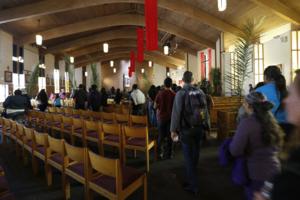
Jesuit priest with Bay Area ties accused of sexual assault of minors
SAN JOSE, Calif. — A prominent Catholic priest with ties to the Bay Area is behind bars in San Luis Obispo County facing charges of sexually abusing three boys starting in the early 1990s, and police think there are more victims.
Theodore Gabrielli, 61, was arrested June 12 in Los Osos, near Morro Bay, and charged with three counts of ...Read more
What is a 'supernatural church?' Five things to know about a growing Christian branch
MIAMI -- “Miracles happen here.”
That’s the slogan of one megachurch in southwest Miami-Dade County at the forefront of the fast-growing Christian “supernatural” movement.
It’s an Evangelical offshoot, rooted in Pentecostalism, that leans far more heavily into revelations and prophecy than mainstream Christian churches and wields ...Read more
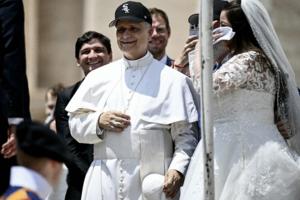
Pope Leo XIV related to Madonna, Justin Bieber and Angelina Jolie
The newly appointed Pope Leo XIV has several star-studded branches on his family tree.
The New York Times took deep dive into the new pope’s lineage and found that his cousins include Madonna, Justin Bieber and Angelina Jolie.
The Catholic leader, who made history by becoming the first American pope following the death of Pope Francis, also ...Read more
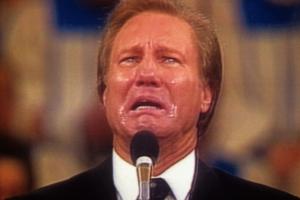
Jimmy Swaggart in critical condition after cardiac arrest
Louisiana televangelist Jimmy Swaggart remained in critical condition Tuesday, two days after he suffered a cardiac arrest and collapsed at his home.
Swaggart, 90, was found at his Baton Rouge residence around 8 a.m. Sunday, with first responders immediately administering CPR and taking him to a hospital, his family said on Facebook.
“He ...Read more
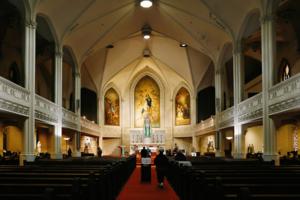
How many US adults have connections to Catholicism? What new survey finds
Catholics make up one of the largest religious groups in the United States — more than any Protestant denomination — and many who don’t identify with the faith still said they have a personal or family connection to it, according to a new survey.
Nearly half of Americans, 47%, said they have a relationship to the Catholic faith, with 20% ...Read more
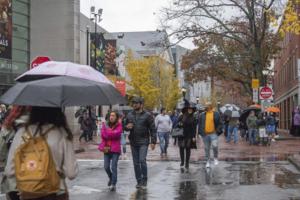
Massachusetts officials face heat for push to ban religious groups from renting school space
BOSTON — City officials in Salem, Massachusetts, are under fire as they push to ban churches and religious groups from renting public school space.
While the Salem School Committee moves forward with the proposal, a free speech and religious liberty group is threatening that it will sue The Witch City for “anti-Christian witch hunts.”
...Read more
Popular Stories
- Amid ICE raids, bishop tells SoCal worshippers they can stay home on Sundays
- With 'monk on Miracle Mile,' visitors seek peace in this hidden Buddhist center
- What is the Johnson Amendment? What to know as IRS changes tax exemptions
- Long after the fuss over Pope Leo XIV, the village of Dolton will still be here
- Strip resort will pay six-figure settlement in religious discrimination, retaliation lawsuit







